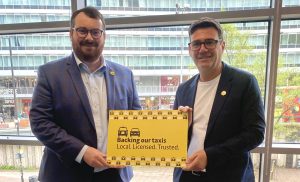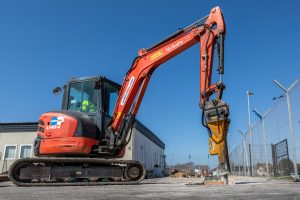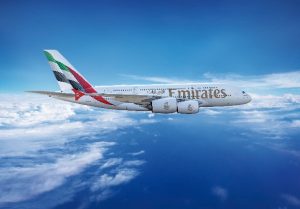Business group pushes back on Burnham cleaner greener taxi plans

Proposed reforms aimed at allowing Greater Manchester councils a tighter grip on taxi licensing have been welcomed by lobby group the Federation of Small Businesses (FSB), but the organisation has called for a deadline to make polluting vehicles comply with emissions standards to be extended until 2029 or 2030.
The FSB, which was a loud voice against the Clean Air Zone proposals of 2021, has warned that plans to require hackney carriage operators – black cabs – to upgrade to newer vehicles is “not sufficient”.
Last Wednesday, as reported on TheBusinessDesk.com, the Greater Manchester Mayor Andy Burnham launched a campaign and consultation to ban out of area licensing for taxis in Greater Manchester and introduce a new regime where taxi drivers are accountable locally.
He described the current system as “broken” and said it was unacceptable that half of taxis operating in Greater Manchester are licensed out of the area, mainly in Wolverhampton.
Launching a new campaign ‘Backing our taxis: Local. Licensed. Trusted.’ Burnham said the local phenomena requires a national response and called for the government’s English Devolution Bill to both devolve power on taxis to Mayoral Combined Authorities and put a stop to ‘out of area’ licensing.
Linked to licensing reform, Greater Manchester agreed a new Clean Air Plan earlier this year with government to tackle air quality and cut emissions without the need for a charging zone.
But FSB Development Manager in GM, Robert Downes, said: “While we welcome what has been announced, we still have concerns about the hackney carriage proposals. The CA is offering small grants of up to around £8,000 for drivers to replace older vehicles with cleaner Euro6 models. At present the black cab fleet in GM stands at around 2,000, but 1,100 of those are non-compliant and will need to be replaced.
“The cost of a Euro6 compliant black cab is eye wateringly expensive, and considerably more than the grant available. Until the Mayor has control of the out-of-town taxi problem, which is deeply damaging the viability of ‘homegrown’ taxi operators to make a living, it doesn’t seem fair or right to move ahead with the proposals around emissions standards if the out-of-town issue hasn’t been resolved.
“There’s a good chance without further extension to the deadline from December 2026 that GM will lose many black cab operators, and that would be really detrimental for many other sectors, from hospitality to retail, as well as for SEN education.”
The 12-week discussions with the taxi trade will include how best to allocate an £8 million fund for drivers of Hackneys carriages (or black cabs), which formed part of the Clean Air Plan deal. Greater Manchester will also explore how private hire vehicles can also be supported to make the switch to modern vehicles, potentially through subsidised, low interest loans.
It has also been confirmed that leaders of Greater Manchester’s ten local authorities have endorsed proposals to give drivers more time to upgrade their vehicles, extending the emission compliance date from the end of 2025 to at least 31 December 2026.
Whilst the decision will be down to individual licensing committees to consider and agree proposals, leaders have backed the extension, as well as an exemption for vehicles until the maximum age limit (as part of existing licence agreements with individual drivers).
Burnham said he would look at grants of up to £1200, or loans of up to £5,000 to help their makes their vehicles compliant with clean air legislation.
Cllr Eamonn O’Brien, leader of Bury Council, and the lead on clean air policy said last week taxis play a role in helping improve air quality on the city-region’s roads.
“Just like the Bee Network, we want to have the right standards in place to encourage drivers to license here in Greater Manchester. But we understand the pressure being faced by drivers, and that’s why we want to work with the trade to find out how we can best ensure all journeys are safe and reliable for passengers. We also want to provide the right support and time to help them transition to cleaner vehicles, helping deliver a cleaner, greener city-region.”








